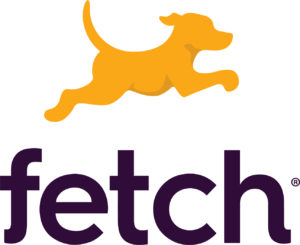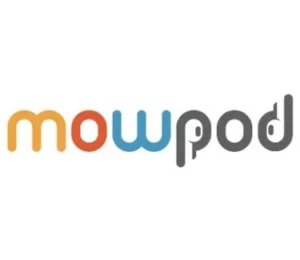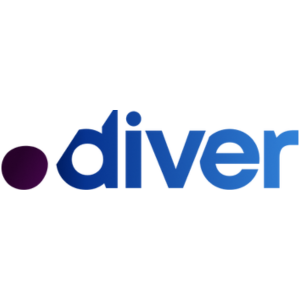LISTEN IN A POD APP
Filters
Doug Bell | LeanData
Why B2B SaaS companies create podcasts — Doug Bell // LeanData
Doug Bell, LeanData CMO, discusses the rise of CROs and the importance of rev ops to marketers. Wherever Doug Bell can take an activity that allows for the creation of short-term and long-term growth, he’ll do it. The Revenue Generator podcast is LeanData’s solution for brand awareness and demand generation. Today, Doug talks about why…
Play PodcastDoug Bell | LeanData
Is Rev Ops a thing for marketers? — Doug Bell // LeanData
Doug Bell, LeanData CMO, discusses the rise of CROs and the importance of rev ops to marketers. Rev Ops connects the data between sales, marketing, customer success to make sure people are operating efficiently. Does this function truly unify the organization’s operations, or is it simply wishful thinking? Today, Doug talks about RevOps’s potential for…
Play PodcastDoug Bell | LeanData
Emergence of the CRO — Doug Bell // LeanData
Doug Bell, LeanData CMO, discusses the rise of CROs and the importance of rev ops to marketers. There’s no denying that lines between marketing and sales have blurred considerably over the years. With the emergency of the CRO role, should CMOs be worried that they won’t have a job very soon? Today, Doug talks about…
Play PodcastLindsay Rothlisberger | Zapier
How automation can help solve technical debt — Lindsay Rothlisberger // Zapier
Lindsay Rothlisberger, Sr. Manager of Marketing Operations & Email at Zapier, discusses technical debt and marketing automation. In marketing ops, it can be frustrating to be unable to address all technical debt immediately. However, it's critical that we prioritize business impact over perfection when it comes to marketing automation. Today, Lindsay talks about how automation…
Play PodcastLindsay Rothlisberger | Zapier
Technical Debt Is Hindering Your Marketing Team — Lindsay Rothlisberger // Zapier
Lindsay Rothlisberger, Sr. Manager of Marketing Operations & Email at Zapier, discusses technical debt and marketing automation. As your marketing tactics and strategies grow and develop, the need will arise to migrate data to a new platform. After migration, you may notice a drop in your marketing metrics which could signal that technical debt has…
Play PodcastErica Salm Rench | rasa.io
Blending humans, AI, & automation — Erica Salm Rench // rasa.io
Erica Salm Rench, COO at rasa.io, discusses the benefits of artificial intelligence in marketing tools and technology. When integrating AI into your marketing efforts, it's about finding the balance between human input, marketing automation, and AI. While there’s no substitute for well-written human content, it makes sense to automate away the tasks we can afford…
Play PodcastErica Salm Rench | rasa.io
AI-led content creation — Erica Salm Rench // rasa.io
Erica Salm Rench, COO at rasa.io, discusses the benefits of artificial intelligence in marketing tools and technology. Grammarly is just one of the many everyday tools helping writers produce better content. While we’ve gotten to the point where we trust machines for short form content, the future could see machines producing long form content as…
Play PodcastErica Salm Rench | rasa.io
AI tool accessibility for marketers — Erica Salm Rench // rasa.io
Erica Salm Rench, COO at rasa.io, discusses the benefits of artificial intelligence in marketing tools and technology. The automation tools available to marketers now far outnumber the ones that were available just five years ago. In fact, marketers have come to depend on AI to make the marketing process more efficient, using tools for content…
Play PodcastKyle Williams | Brickstack
GTM SasS Hot Takes — Kyle Williams // Brickstack
Kyle Williams, Founder of Brickstack, discusses go-to-market strategies with guest-host Jordan Crawford, Co-Founder of Blueprint. What your best SDR or AE notices may indeed be very painful, for your prospects. But, it may only happen frequently and not be worth the investment. Today, Kyle talks about partner management tools.
Play PodcastKyle Williams | Brickstack
GTM Hot Takes for Partner Management — Kyle Williams // Brickstack
Kyle Williams, Founder of Brickstack, discusses go-to-market strategies with guest-host Jordan Crawford, Co-Founder of Blueprint. Marketing messages are changing constantly. In response, several companies are providing the technology to make these processes easier and faster for users. Today, Kyle talks about go-to-market hot takes for Vendr.com, Hopin.com, and Webflow.
Play PodcastAbout Business Class: B2B
What is B2B (Business to Business)?
B2B or business-to-business refers to products and services that are designed, built, and marketed specifically for other businesses.
The Difference Between B2B and B2C (Business-to-consumer)
The main difference between B2B and B2C (Business-to-customer) is that B2B covers transactions that are done between companies as opposed to B2C, which categorizes transactions between a business and an individual customer.
B2B Marketing vs B2C Marketing
Many B2B marketers would argue B2B marketing is more complex than B2C marketing. Each market type has its own complexities.
Unlike B2C sales and marketing, which is oftentimes targeted toward persuading an individual customer to purchase a product or service, B2B sales and marketing are targeted toward convincing multiple customers such as an entire company and its stakeholders.
In the case of sales of B2B products and services, you not only need to convince the main decision-makers or buyers like the C-suite staff, but you also have to convince them that the entire department or company will benefit. Unlike most typical B2C businesses, the buyer in a B2B business is not the only one impacted by a purchase. It's oftentimes the entire company.
Faced with this challenge, many B2B companies focus heavily on generating high-quality B2B leads and ensuring their journey through the funnel is as efficient as possible to drive sales.
Apk Ticket blog is dedicated to delivering you the best news about your Android devices. We're also committed to helping you find all of the features and applications that you need to live your best life
How to generate B2B Leads & Sales
- Develop a Content Marketing Strategy:
- Create a strong B2B content marketing strategy that adds value to potential buyers, increases lead generation, and drives sales.
- Optimize your B2B Website:
- Set up your B2B website to a self-service where website visitors can be educated and B2B buyers are given the information needed for the decision-making process. Many B2B eCommerce websites have done this very well (e.g. Alibaba.com) where B2B customers can browse and purchase directly from the website.
- Offer a Free Trial:
- Offer a free trial period to new B2B customers. This permits them to use the product or service in the context of their business risk-free and helps potential customers make a decision if they are unsure. When businesses can easily see the impact your product or service has on their operations, you're more likely to obtain more sales.
- Provide Tutorials:
- Create a thorough tutorial system in order to guide the buyer through the product or service so that implementation is as smooth as possible.
B2B in the MarTech World
When people think of B2B, many think of it in the context of a traditional supply chain where a company making a physical product is purchasing components and raw materials from another company in order to sustain its manufacturing process.
The reality is that B2B exists in the digital world in much the same way that it exists in the physical world. Many of the stakeholders in corporate companies and start-ups rely on software built by other businesses in order to build their own digital products or services.
The combination of these various B2B MarTech tools is called their B2B MarTech stack.
How to build a B2B MarTech Stack
If you're building a B2B MarTech stack, there are a few categories that need to be covered. These include:
- Customer Relationship Management (CRM)
- Tracking relationships across your sales and marketing departments is essential. Your customer relationship management tool is key to doing so in order to nurture and convert B2B customers at various touchpoints. Consider using tools like Hubspot CRM, Salesforce, or SAP CRM.
- Marketing Automation
- With the evolution of data collection, consumers today expect more than just cookie-cutter ads that can apply to a large group of people. They want personalization. Nowadays, marketing automation tools like HubSpot, Marketo, and Pardot offer AI and machine learning feature to make it easier to personalize your communication.
- Content Marketing Management
- Content has been king and remains king. A robust content marketing management system is essential for a B2B marketing strategy. The best-in-class platforms offer a combination of workflow management, editorial calendars, and an array of features that make publishing content easy and efficient. Tools we recommend include Contently, DivvyHQ, and Kapost.
- Customer Data Platforms
- "Data is the new oil," is a common phrase marketers have encountered throughout the industry. Given its value, the unification and analysis of customer data should definitely be a priority for your company. Customer data platforms include tools like Segment, Optimove and Exponea.
The Importance of MarTech in B2B
By itself, B2B marketing is a relatively difficult task given it requires persuading a collection of people, such as teams and departments, at a time in order to make a sale. However, when put into the context of the present-day marketing and advertising industry, the rise in ad-blockers and the general disdain consumers have when it comes to being marketed to on social media and search, we see that executing B2B marketing end-to-end is growing increasingly difficult.
With negative sentiments surrounding advertising increasing, it's clear B2B marketers need to revise their approaches, and that approach is personalization.
In order to facilitate personalization, B2B marketers use MarTech tools, which help them access, organize, analyze, unify and action the data. The ability to personalize their marketing in this way allows them to craft outreach messages, nurture campaigns and calls-to-action that customers actually relate and respond to.
If you're interested in learning more about B2B, B2B marketing, B2B companies and B2B sales, check out the episodes listed below from the MarTech podcast.
They include interviews with marketers and influencers in the B2B MarTech industry who share their advice, strategy, and the best B2B tools on the market.
Read MoreRead Less
Sponsors of the MarTech Podcast



































